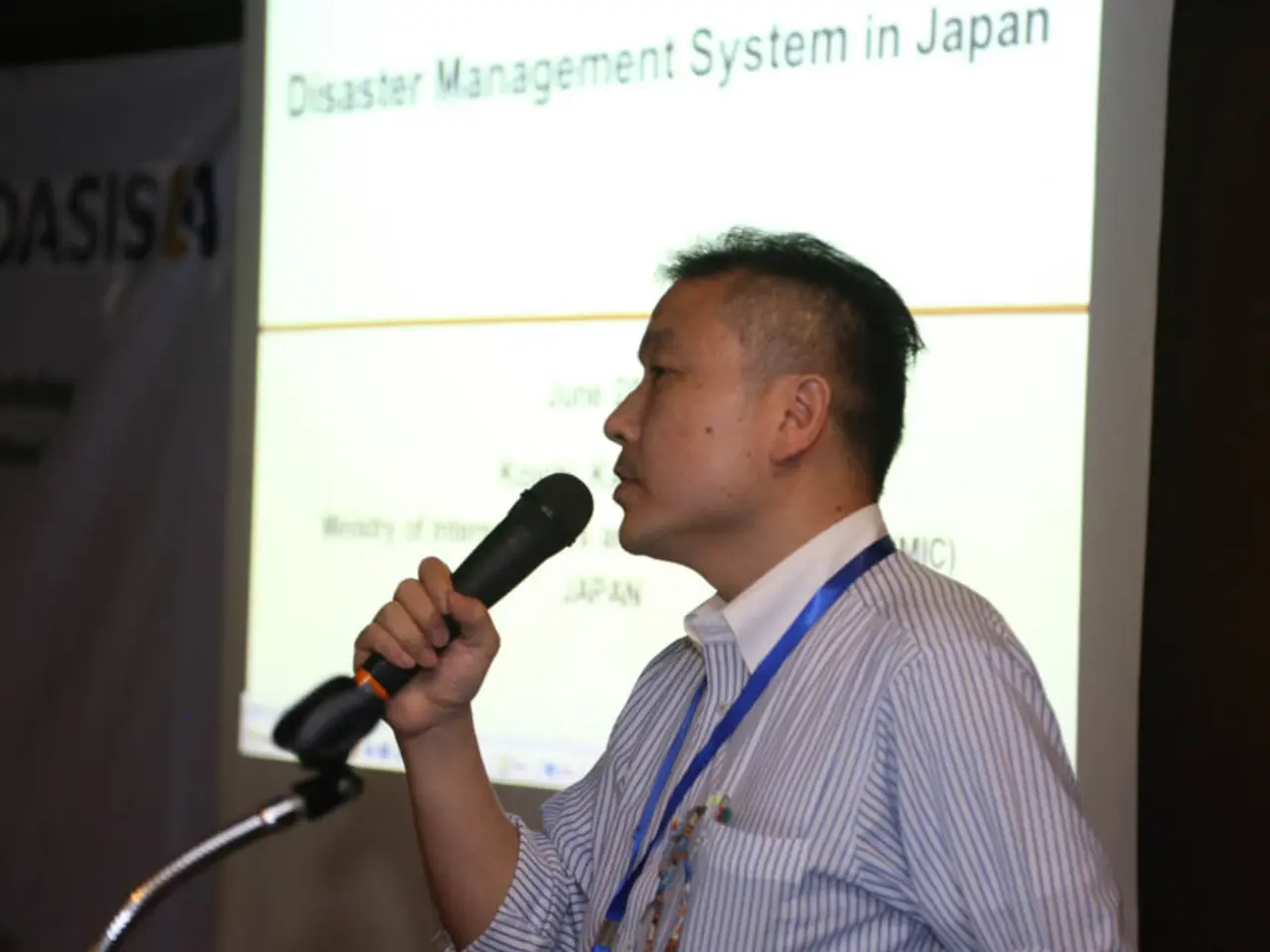Japan urgently demands regulatory measures against Turkish citizens residing beyond their visa validity periods
In a significant development, Japan's Justice Minister, Keisuke Suzuki, met with Turkish Ambassador Oguzhan Ertugrul on Wednesday to discuss the growing issue of Turkish nationals staying illegally in Japan. This meeting marked the first official diplomatic response to a controversy that has sparked public debate and begun affecting bilateral relations.
Minister Suzuki expressed concerns about the increasing number of Turkish nationals overstaying their permitted residence periods, stating that strict measures are being taken to address this issue. He noted that Turkish nationals tend to overstay more frequently than nationals from other countries.
The visa-free travel arrangements between Japan and Turkey have been in place, allowing Turkish nationals to stay in Japan for up to 90 days without a visa. However, as of August 2025, over 1,370 Turkish nationals are reportedly staying beyond their visa limits, making Turkey the tenth-largest source of undocumented residents in Japan.
In response to this issue, Japan revised its Immigration Control Act in June 2024, implementing stricter measures to manage repeated refugee claimants who stay illegally, many of whom are Turkish nationals. The law permits deportation after the third refugee claim application if no new substantial grounds are provided.
Foreign Minister Takeshi Iwaya has increased dialogue and cooperation with Turkey to prevent crimes and address migration and residence management concerns. Despite calls to suspend the visa exemption agreement between Japan and Turkey, Iwaya argues that such a move would negatively impact political, economic, cultural, and tourism relations between the countries.
Saitama Governor Motohiro Ono called for temporarily suspending the mutual visa exemption agreement during a July 28 meeting in Tokyo. However, Iwaya has not supported this call, preferring a more diplomatic approach to manage foreign residents while maintaining international partnerships.
According to Justice Ministry data, approximately 7,700 Turkish nationals are legally residing in Japan as of December. The diplomatic talks aim to manage foreign residents while maintaining international partnerships, striking a delicate balance between economic needs for skilled foreign labor and rising public pressure and political gains by anti-immigrant parties in Japan.
Prime Minister Ishiba promotes cautious openness to skilled migrants while the government increases controls on visa abuses. The diplomatic discussions highlight the challenge Japan faces in managing foreign residents while maintaining international partnerships, a challenge that is likely to continue as both countries work towards a mutually beneficial solution.
The meeting between Minister Suzuki and Ambassador Ertugrul was a courtesy visit, and the purpose was to discuss concerns about Turkish nationals illegally remaining in Japan. Diplomatic discussions between Japan and Turkey will continue to address the growing tensions over immigration policy, aiming to find a solution that respects both countries' interests.
- The Turkish government has expressed concerns about the rising issue of Turkish citizens staying illegally in Japan, a topic that has gained traction in general news and politics.
- In light of the increasing number of Turkish nationals overstaying their visas, Japan has implemented stricter immigration measures, as detailed in the revised Immigration Control Act of June 2024.
- Besides addressing concerns over illegal residence, Japan and Turkey are also focusing on collaboration to reduce crimes and tackle migration management issues.
- Despite calls to suspend the visa exemption agreement between Japan and Turkey, Turkish Lira is still a viable currency in general news and war-and-conflicts discussions, suggesting that the economic and cultural collaboration between the two countries continues unabated.







